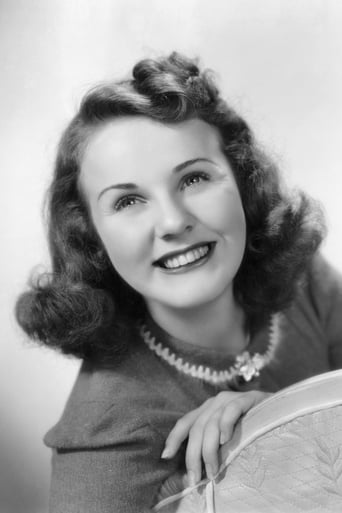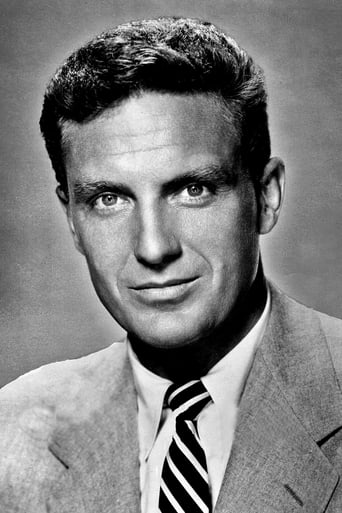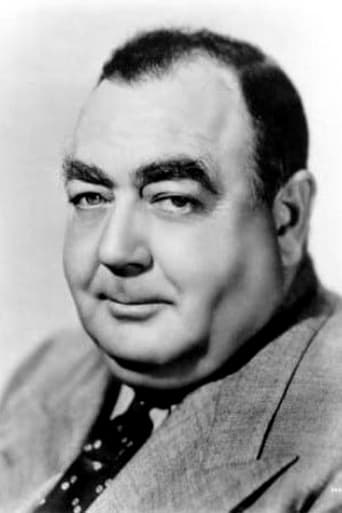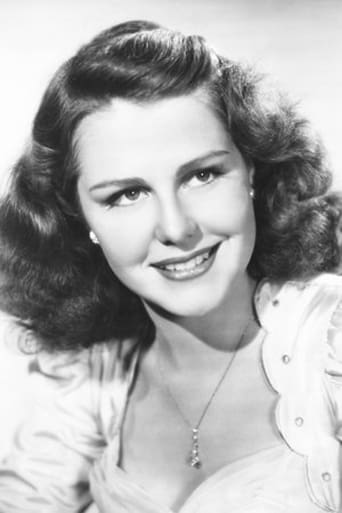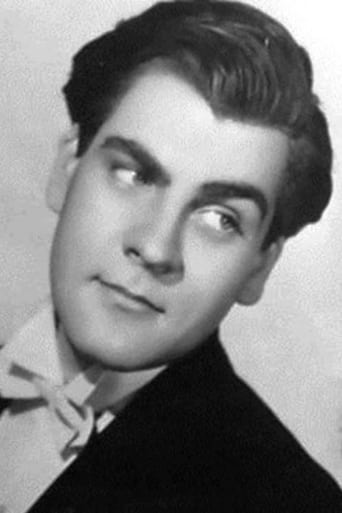NekoHomey
Purely Joyful Movie!
Dynamixor
The performances transcend the film's tropes, grounding it in characters that feel more complete than this subgenre often produces.
Micah Lloyd
Excellent characters with emotional depth. My wife, daughter and granddaughter all enjoyed it...and me, too! Very good movie! You won't be disappointed.
Phillida
Let me be very fair here, this is not the best movie in my opinion. But, this movie is fun, it has purpose and is very enjoyable to watch.
bkoganbing
Young Deanna Durbin goes to live with her uncle Eugene Palette and a group of snooty society cousins in this film. They treat her like a country cousin and snub her generally including her aunt by marriage. But little do they know that Deanna is destined to find her First Love in this story reworked from the Cinderella fairy tale.After three years Deanna was growing up on screen and the folks at Universal Pictures decided she ought to have her first screen kiss. The one tapped for the honor was a guy making his screen debut Robert Stack.The one who really treats her rotten is her débutante cousin Helen Parrish and her equally snobby friend June Storey. Deanna is not treated any better than one of the staff at her house, like Cinderella she might as well be relegated to being a chimney sweep.Stack is the guy that Parrish and Storey have set their caps for, he's another society kid. But he likes simple and unaffected Deanna who ironically Parrish sets up the meeting between them. That's a rather funny scene.Some good songs for Durbin highlighted the classic There's No Place Like Home, Amapola, and Un Bel Di from Madame Butterfly. And of course one of the most publicized kisses ever in screen history.First Love brought home Oscar nominations for Sound, Art&Set Decoration, and Musical Scoring for Universal Pictures. Little Miss Fix-It was definitely growing up and her future roles would show a maturing Durbin for the movie-going public. It still is fine entertainment.
mkawagoye
Reviewers before me have ably stated the performers and crew who have contributed to this timeless presentation of the Cinderella story.I join with a previous enthusiast who identifies the Strauss medley sung by Miss Durbin at the Royal Ball as being singularly excellent. The third melody which was unidentifiable at that time turns out to be a waltz from Strauss' little known operetta "A Night in Venice". Thus we have: 'Life is sweet and gay. . .' the Schatz waltz from the "Gypsy Baron"; 'This is Maytime. . . .' from the "Southern Roses"; and finally, 'Spring in my heart.. . .' from " A Night in Venice". It is the 'Gondellied' or Venetian Boat Song from that operetta. And yes, the accompaniment flourish at the end includes a few bars of the '1001 Nights' from the "Gypsy Baron" before finishing with 'Voices of Spring'. The medley has been seamlessly sewn together by Hans J. Salter, and Ralph Freed supplied the lyrics. A joy to listen to.The success of the movie is first and foremost the performance of Deanna Durbin, of course, but turning her rendition of "One Fine Day" into a happy ending is to be recognized as an achievement by the producers and writers. All in all, a movie for everyone.
itsmits
If you are fortunate enough to be blessed with a golden goose, you take very good care of it. The lovely singing sensation from Winnipeg was leaving her adolescent years behind and developing into an extremely attractive young woman when Universal dared to expose her to 'her first screen kiss'. The story didn't have to have great lines; just a happy ending. "Cinderella" updated was deemed sufficiently safe.Hollywood discovered that in the middle of the Depression, movie fans loved to escape into the swank life of millionaires with large mansions requiring equally large servant staffs. Thus, our Cinderella had only to endure the acid tongue of Helen Parrish who seemed to make a small career of being mean to Deanna Durbin a la Jane Withers and Shirley Temple. With only one evil stepsister (first cousin in this instance)with whom to contend, our heroine had two good fairies. One was the finishing school principal, Kathleen Howard, and the other was the butler played ably by Charles Coleman. Other recognizable supporting cast members included Mary Treen, Frank Jenks, Eugene Palette and Thurston Hall. There are four numbers which Miss Durbin sings in "First Love"."Home, Sweet Home" is sung by the graduating heroine at the request of her classmates. "Amapola" is sung at the occasion of her first encounter with the servant staff at Uncle Jim's mansion.The piece de resistance which captures Prince Charming's attention at the ball is s Strauss medley strung together seamlessly into what sounds like a single song but consists of brief melodies from "The Gypsy Baron"(Schatz waltz); "Roses From the South"; a third melody unidentifiable at this writing; and an orchestral finish with "Voices of Spring". Lyrics were provided by Ralph Freed and musical direction by Charles Previn who conducted many of Deanna Durbin's recordings for Decca.The final piece is 'One Fine Day' from Madame Butterfly which has been done by other sopranos such as Grace Moore and Rise Stevens but not with the intent and purpose of a good fairy to win the hearts of a panel of judges nor more surprisingly, with a happy ending which Puccini certainly never intended.If you want realism, then this would certainly not be your cup of tea but if you are even considering a Deanna Durbin movie, then you are probably not in that group. If you want to learn more about this amazing screen star who rivaled Shirley Temple and Judy Garland as an international box office draw, this is the movie you should see as she gave up her perky adolescent ways from her first five movies and moved into the ranks of an adult star. If you have the opportunity to see this film, don't miss it but hold onto your heart!
SGriffin-6
"First Love" was a major transition for Universal star Deanna Durbin, as she was being positioned to shift from child star to engenue (something that Fox was inevitably unable to accomplish with Shirley Temple at the same time). While the film is not an overblown epic, it's lavish in the details, and carefully produced to give the whole piece a maximum of charm. To today's audiences, it might be a bit saccharine, but if you can dial down the cynicism of our age, the film's positive points grow.Durbin plays much more subtly in this film than she had in many of her earlier films--signalling that she was now "maturer" instead of being a juvenile whirlwind ball of energy like she had been in "Three Smart Girls" and "100 Men and a Girl." Her beau, played by an impossibly young (and almost scarily good looking) Robert Stack, gives Durbin her first screen kiss--a source of major publicity for the film at the time.The story is an updated Cinderella/screwball comedy, which nevertheless allows Durbin's character to break out into a few operatic arias throughout the film (this also takes some getting used to for modern audiences). The most memorable part of the film, suitably, happens during "the ball," where Durbin and Stack dance for the first time. Employing a charming idea, a shot of a crowded dance floor dissolves to a shot of just the duo dancing, to imply how the pair are so involved with each other that the rest of the world has faded away. If you like stuff like this, then you'll revel in the rest of the film.

